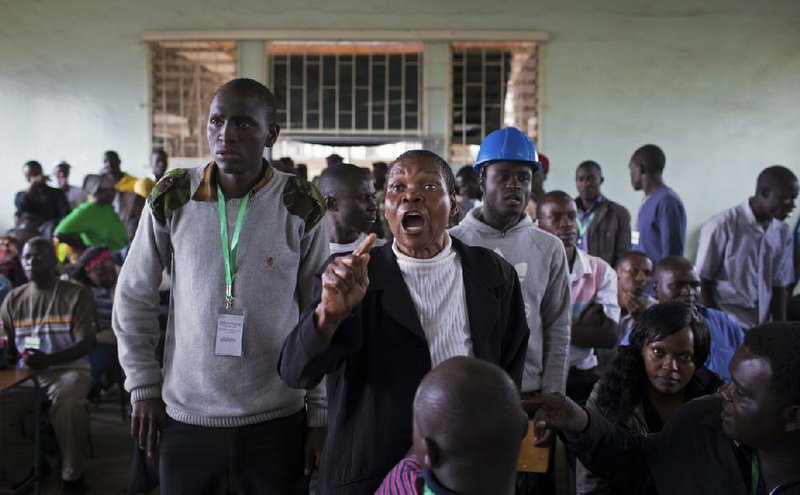NAIROBI, Kenya — Kenya’s election commission accepted responsibility Wednesday for the failure of an electronic vote-counting system that has left the country in an electoral limbo, while a leading presidential candidate accused Britain’s high commissioner of meddling in the crucial election.
The election commission said the final results of Monday’s presidential election should be released Friday. Officials began transporting the tally sheets from voting locations to the capital to begin a count of the vote, the country’s first since its 2007 election that led to tribal violence and left more than 1,000 people dead.
Kenyans grew increasingly frustrated that the announcements of public vote tallies stopped close to 48 hours after polls closed. The breakdown of the electronic vote system has meant that less than half of preliminary results were released. Officials - who have been working to ensure violence doesn’t break out this election - are calling for patience.
“The delay is giving rise to conspiracy theories. People are panicking about the delay in the results of the elections. But unlike last election there is a level of restraint,” said Kevin Muriunge, a 25-year-old student.
In an example of rising agitation, youths in the city of Garissa, near the Somali border, gathered near the vote tallying center and began rioting, drawing a response from police, who opened fire. One teenager was killed, said Musa Mohamed, a doctor at the Garissa hospital.
The coalition of Deputy Prime Minister Uhuru Kenyatta - the candidate who faces charges at the International Criminal Court and is the son of Kenya’s founding president - accused the British high commissioner of “shadowy, suspicious and rather animated involvement” in efforts to get the election commission to decide that rejected ballots should still be counted in the overall vote total.
Kenyatta’s party also asked the high commissioner, Christian Turner, to explain what it called “the sudden upsurge of British military personnel” in Kenya. British troops attend a six-week training course near Mount Kenya before deploying to Afghanistan. A new battle group arrived the week before Kenyans voted.
Britain’s Foreign Office said claims of British interference “are entirely false and misleading.” It said the British soldiers in Kenya are part of a regular training program planned nine months ago “completely unrelated to the Kenyan elections.” It said Britain has no position on the rejected votes, saying that the election commission or the courts should decide.
“We have always said that this election is a choice for Kenyans alone to decide,” the Foreign Office said, adding: “We urge all sides to ensure calm, avoid inflammatory statements, and to take any disputes to the courts.”
Kenyatta and Prime Minister Raila Odinga are the top two contenders.
William Ruto, Kenyatta’s running mate, urged the electoral commission to speed up the release of results.
“As we are all aware, the country is at a standstill at the moment,” Ruto said.
At an evening news conference, the election commission chairman, Ahmed Issack Hassan, tried to assure the country that all votes cast would be reflected in the final result. He urged candidates to take any objections they have to court.
Referring to long voting lines during Monday’s vote, Alojz Peterle, a former president of Slovenia and the chief observer in the European Union observer mission, said Kenyans have demonstrated they are capable of great patience.
“But even more patience is called for now,” he added.
Information for this article was contributed by Rodney Muhumuza and Daud Yussuf of The Associated Press.
Front Section, Pages 5 on 03/07/2013

